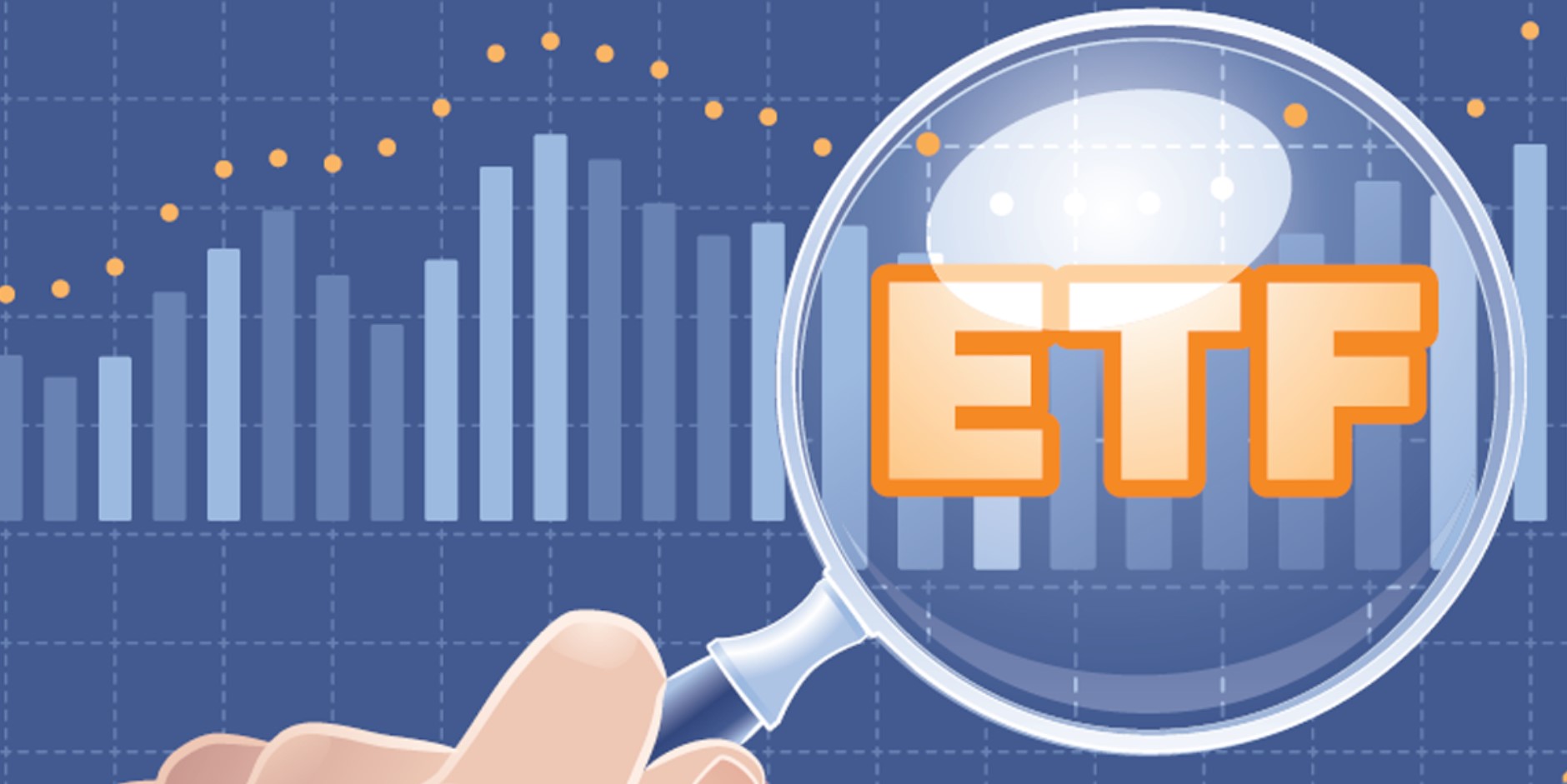Forex, short for foreign exchange, is the largest and most liquid financial market globally, where currencies are traded. Investors often turn to Forex to diversify their portfolios further. One way to do this is by investing in Forex ETFs.
Understanding Forex ETFs
Forex Exchange-Traded Funds (ETFs) are a relatively recent addition to the world of financial markets. They offer a unique way for investors to gain exposure to the foreign exchange market without directly trading currencies. These funds are designed to track the performance of specific currency pairs or indices.
One of the key advantages of Forex ETFs is their simplicity and accessibility. Unlike traditional Forex trading, where you need to open a specialized trading account and navigate the complexities of the currency market, ETFs can be bought and sold just like stocks through a regular brokerage account. This ease of access has made them increasingly popular among retail investors looking to diversify their portfolios.
- Forex ETFs typically come in two varieties: those that track individual currency pairs and those that follow currency indices. For example, an ETF might track the performance of the EUR/USD currency pair or the US Dollar Index. By investing in these ETFs, you effectively gain exposure to the underlying currencies’ movements. This can be particularly attractive if you have a strong view on a specific currency’s direction.
In addition to simplicity and accessibility, another advantage of Forex ETFs is transparency. These funds provide investors with real-time pricing information, allowing you to see exactly how your investment is performing at any given moment. This transparency can be a significant benefit, especially when compared to the opaque nature of some other investment vehicles.
How Forex ETFs Work
To understand how Forex ETFs work, it’s essential to grasp the concept of currency pairs. In Forex trading, currencies are always quoted in pairs, such as EUR/USD or GBP/JPY. The first currency in the pair is the base currency, and the second is the quote currency. The exchange rate tells you how much of the quote currency you need to buy one unit of the base currency.
Forex ETFs mimic these currency pairs’ performance by holding a basket of the underlying currencies. For instance, an ETF tracking the EUR/USD pair would likely hold a combination of euros and US dollars. As the exchange rates between these currencies fluctuate, the value of the ETF also changes.
Investors can buy and sell shares of Forex ETFs on stock exchanges, just like they would with traditional ETFs or stocks. This means you can enter or exit your positions during market hours, which adds an element of flexibility that is not available in the traditional Forex market, where trading occurs 24 hours a day during the workweek.
Additionally, the trading of Forex ETFs happens in a regulated and centralized environment, which can provide a sense of security for investors. This contrasts with the over-the-counter nature of the Forex market, where transactions occur directly between participants, potentially leading to issues like counterparty risk.
Overall, Forex ETFs offer a straightforward and accessible way to participate in the currency market’s movements without the complexities associated with traditional Forex trading. They are an attractive option for investors seeking diversification and simplicity in their portfolios. However, like any investment, there are factors to consider before diving in, which we’ll explore in the following sections.
Benefits of Investing in Forex ETFs
Diversification Across Currencies
Investing in Forex ETFs can significantly enhance your portfolio diversification. Here are some of the key advantages of diversifying your investments across different currencies:
Benefits of Currency Diversification:
- Risk Mitigation: Diversifying across various currencies can help reduce the impact of adverse currency movements on your overall portfolio. If one currency weakens, others may strengthen, balancing your returns.
- Enhanced Stability: A well-diversified currency portfolio tends to be more stable over time. This stability can be particularly appealing for risk-averse investors looking for steady, long-term growth.
- Global Exposure: Currencies represent different economies and regions worldwide. By diversifying, you gain exposure to the economic health and trends of various countries, potentially capitalizing on global growth opportunities.
Liquidity and Accessibility
Forex ETFs offer liquidity and accessibility that traditional Forex trading may lack. Here’s a list of advantages related to the liquidity and accessibility of these funds:
Benefits of Liquidity and Accessibility:
- Ease of Trading: Forex ETFs trade on stock exchanges, allowing you to buy or sell them during market hours. This flexibility is especially valuable for investors who can’t participate in the 24-hour Forex market.
- Market Transparency: The real-time pricing information for Forex ETFs provides transparency. You can easily track their performance and make informed decisions.
- Lower Costs: ETFs often have lower trading costs compared to traditional Forex brokers, which may charge spreads and commissions. These cost savings can improve your overall returns.
Professional Management
One of the significant advantages of Forex ETFs is that they are professionally managed. Here are some points highlighting the benefits of having expert management:
Benefits of Professional Management:
- Expertise: Fund managers of Forex ETFs are seasoned professionals with in-depth knowledge of the currency markets. They make strategic decisions on behalf of investors, leveraging their expertise.
- Active Monitoring: Professional managers actively monitor the currency portfolio, adjusting it as market conditions change. This can help optimize returns and manage risk.
- Time-Saving: By investing in Forex ETFs, you delegate the day-to-day decision-making to experts. This can save you time and effort that would otherwise be spent analyzing and executing trades.
Investing in Forex ETFs offers a range of benefits, from diversification to accessibility and professional management. However, it’s essential to consider the potential drawbacks and factors to assess before diving into these investments, which we’ll explore in the upcoming sections.
Considerations Before Investing
Risk Factors
Like any investment, Forex ETFs come with risks. Currency markets can be volatile, and ETF values can fluctuate accordingly. It’s essential to assess your risk tolerance before investing.
Cost and Fees
Consider the fees associated with Forex ETFs, including management fees and spreads. These costs can impact your overall returns.
Currency Selection
Choose Forex ETFs that align with your investment goals and beliefs. Some ETFs focus on specific currency pairs or regions, so pick those that suit your strategy.
Steps to Get Started with Forex ETFs
To begin investing in Forex ETFs, follow these steps:
- Research and select the Forex ETFs that match your investment objectives.
- Open a brokerage account that offers access to these ETFs.
- Fund your brokerage account.
- Execute your trades by buying shares of the chosen ETFs.
Monitoring Your Forex ETF Investments
Regularly review your Forex ETF holdings to ensure they align with your financial goals. Stay informed about currency market developments that could impact your investments.
Comparison with Forex Trading
Forex ETFs offer a more accessible and diversified way to invest in currencies compared to traditional Forex trading. However, traders who seek higher leverage and direct control may still prefer traditional Forex markets.
Investing in Forex ETFs can be an effective diversification strategy within the realm of Forex trading. It offers investors exposure to the currency market while spreading risk and providing professional management. However, it’s crucial to understand the risks and costs associated with these investments before incorporating them into your portfolio.
FAQs
- Are Forex ETFs suitable for beginners?
- Forex ETFs can be suitable for beginners, but it’s essential to have a basic understanding of Forex markets and investment principles.
- Do Forex ETFs pay dividends?
- Forex ETFs do not typically pay dividends. Their returns are primarily generated through changes in currency exchange rates.
- What is the minimum investment required for Forex ETFs?
- The minimum investment requirement for Forex ETFs varies depending on the specific ETF and the brokerage platform you use.
- How do I choose the right Forex ETFs for my portfolio?
- Consider your investment goals, risk tolerance, and currency preferences when selecting Forex ETFs.
- Can I use Forex ETFs for short-term trading?
- Yes, Forex ETFs can be used for short-term trading, but it’s important to be aware of the associated risks and costs.

